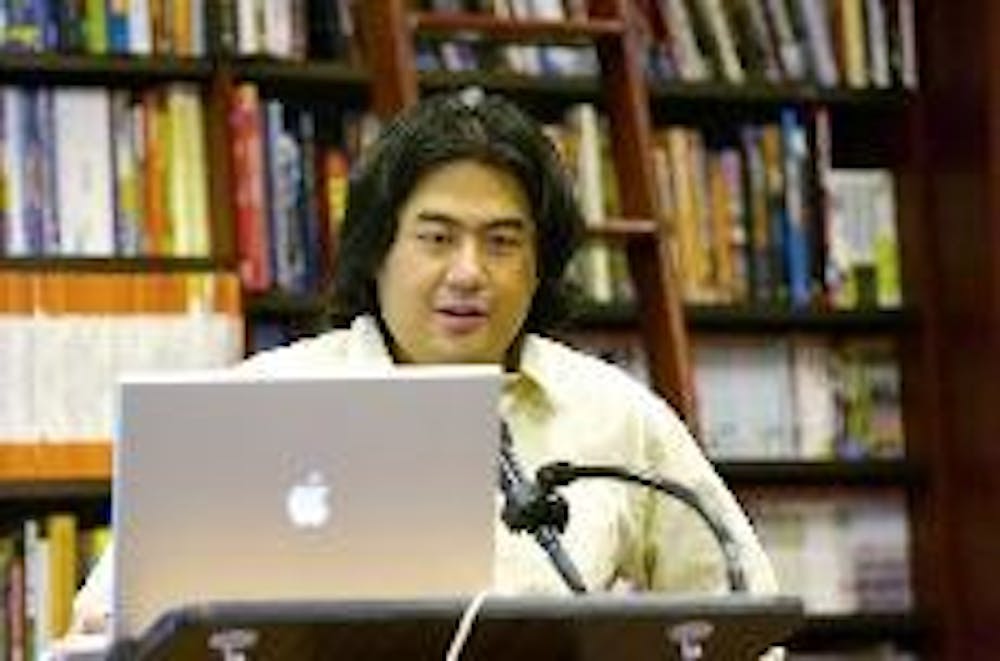
Have you always struggled with foreign languages?
Penn Linguistics professor Charles Yang suggests it may not be your fault in his new book.
A crowd of about 25 - along with three babies - gathered at the Penn Bookstore yesterday afternoon to hear Yang speak about his new book, The Infinite Gift: How Children Learn and Unlearn the Languages of the World.
Yang taught at Yale University for six years and worked on his book for two years before coming to Penn three months ago.
His book is based largely on Massachusetts Institute of Technology professor and Penn graduate Noam Chomsky's theory of "universal grammar," which suggests that all children are born with an a set of innate principles and constraints that apply to all languages.
Yang takes this theory one step further by suggesting that babies are born with the ability to learn any language, but, as they learn their native language, they must unlearn other languages.
Humans learn language in phrases that have certain boundaries, he said.
For instance, a child speaking in incomplete sentences may use the phrase "for cookies," as in the sentence, "that milk is for cookies." The child would never use the phrase "cookies for," as in, "Cookie Monster has cookies for supper," because that breaks the phrase boundary.
"Language happens to be, I think, one of the hardest things we learn," Yang said. "The emergence of your native tongue is at the expense of other languages."
The "mistakes" that children make as they are learning to speak may actually be perfectly formed phrases - in other languages.
A child might say, "I don't want no spinach," which is incorrect in English because of the double negative, but is grammatically correct in Spanish, for example.
Other common "mistakes" that children make are repeating an interrogative in a sentence, which is a convention of German grammar, or omitting the subject of a sentence, which is common practice in Chinese or Japanese.
He also addressed several myths about babies' language, including the idea that sounds like "mama" and "dada" are actual words.
Sorry, parents, that's just a baby babbling.
Furthermore, parents can't really correct their children's errors when they are learning to speak; they learn more by hearing than by being corrected, Yang said.
The Daily Pennsylvanian is an independent, student-run newspaper. Please consider making a donation to support the coverage that shapes the University. Your generosity ensures a future of strong journalism at Penn.
DonatePlease note All comments are eligible for publication in The Daily Pennsylvanian.




